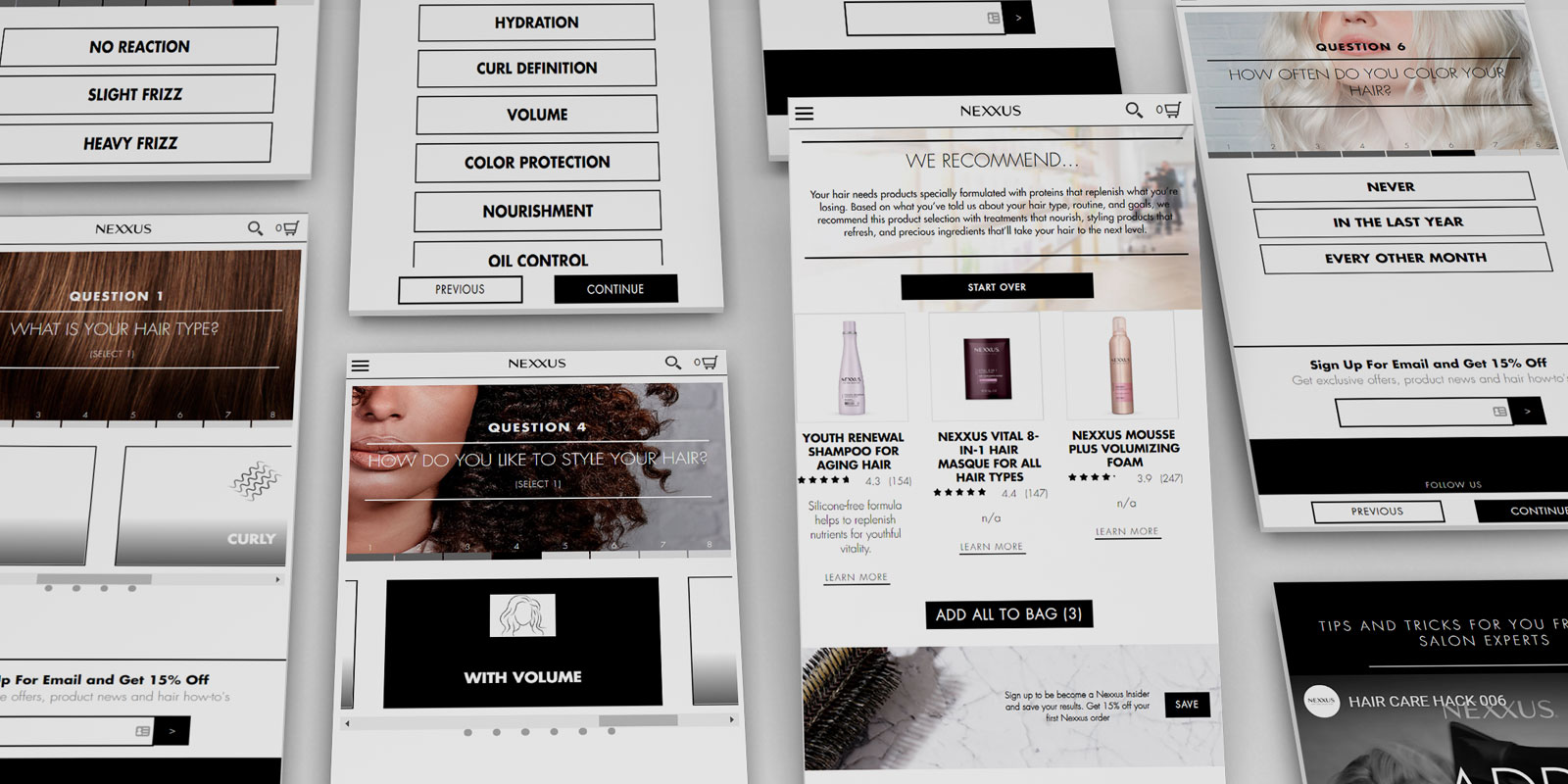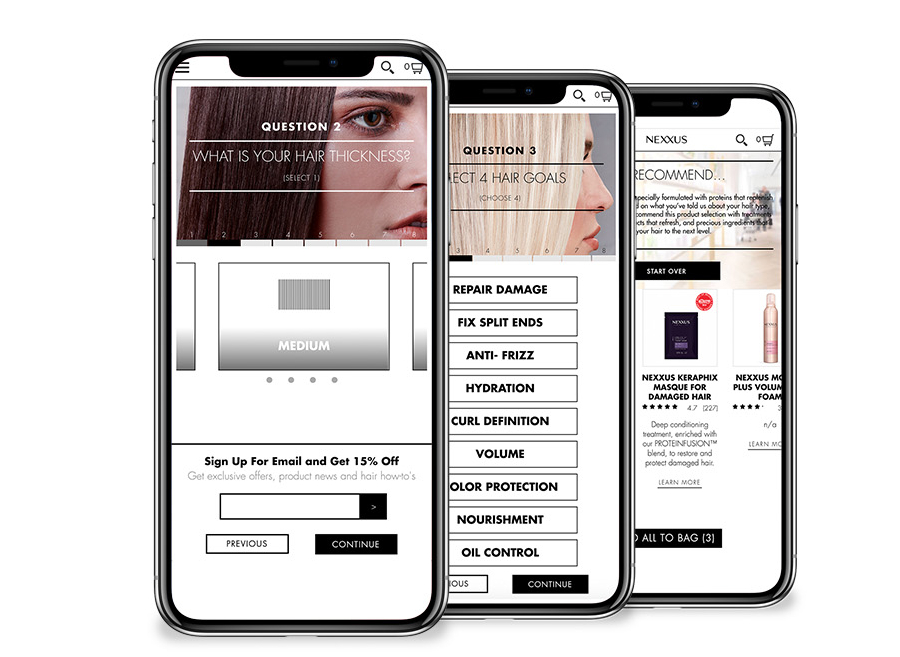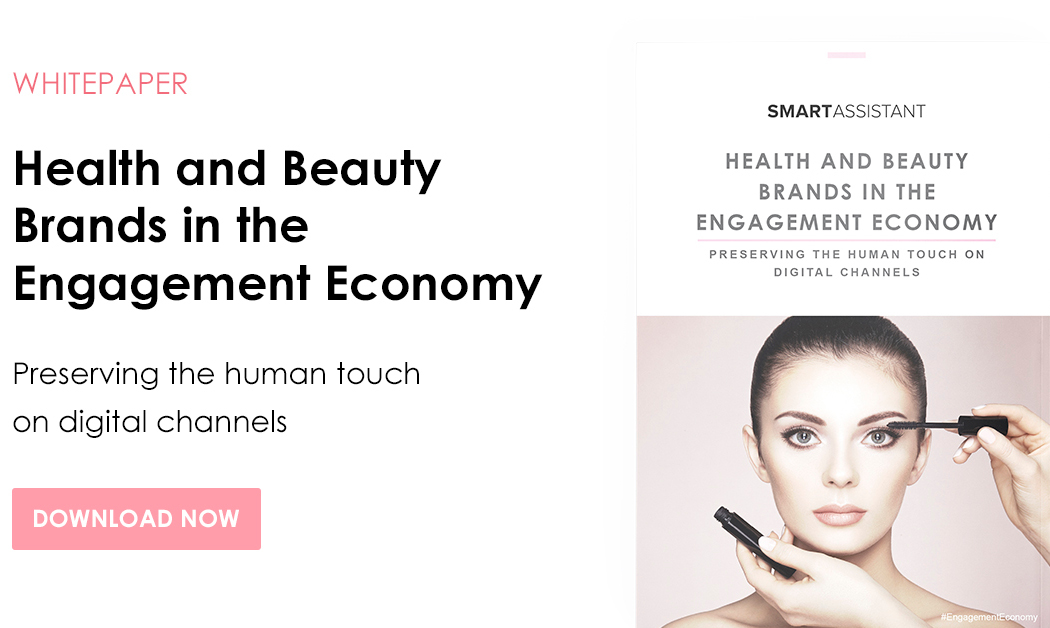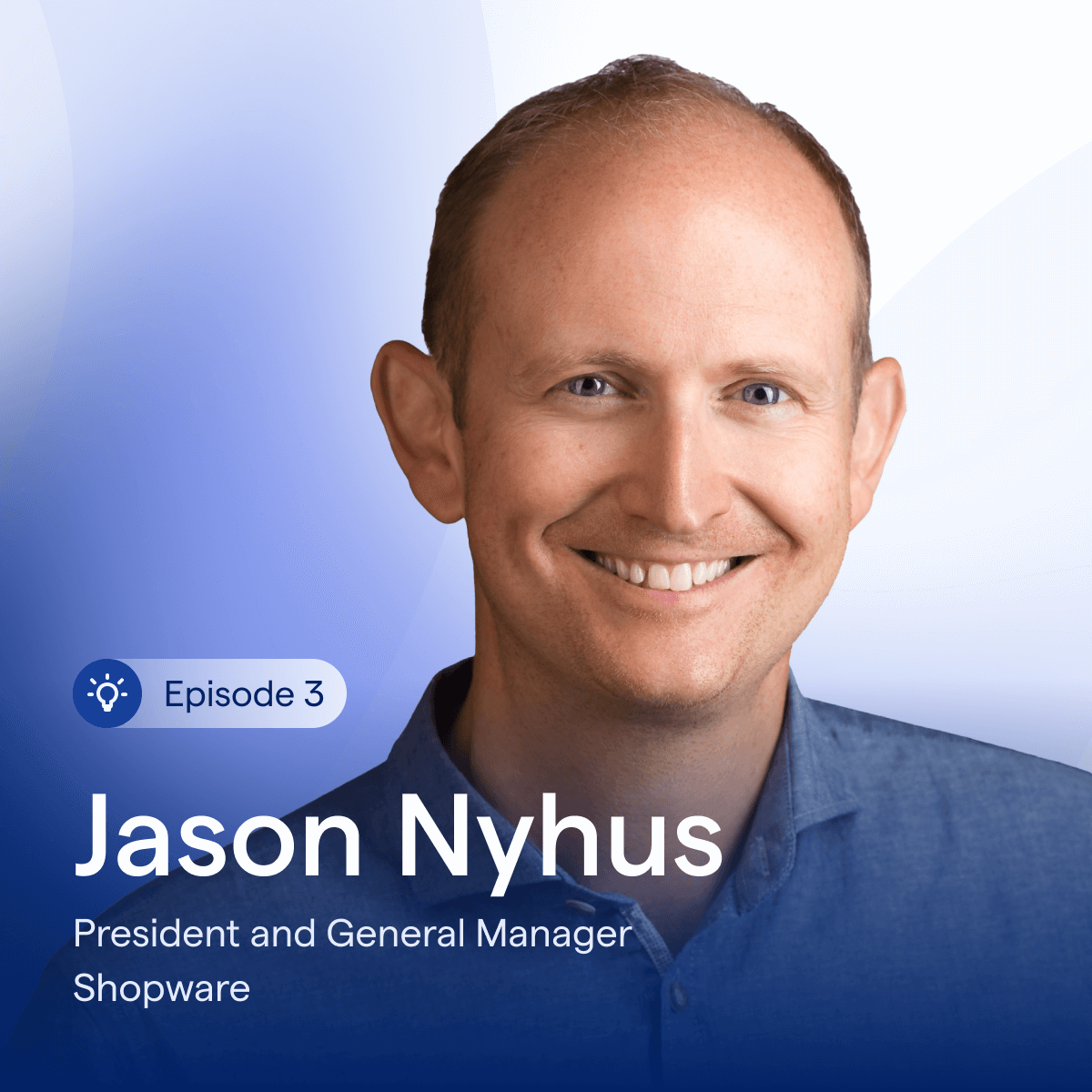For brands around the world, the last few years have been a turning point in the way traditional business is handled. The rise of e-commerce and online shopping giants have resulted in the retail economy trending quickly towards the online space.
For health and beauty brands, already a huge subset of this incredibly profitable economy, it’s been business as usual – until now:
Industry upstarts in the form of customized cosmetics, subscription boxes delivered monthly and the rise of influencer marketing have disrupted and shaken the health and beauty industry to its core. New challenger brands are popping up seemingly overnight, ready and willing to thrive in the online marketplace.
On top of that, while consumers gravitate towards the digital space, they expect brands to treat them as individuals and offer personalized consultation services. Health and beauty consumers still crave the personal, human experiences they’re used to in stores.
Health and beauty consumers crave personal and human shopping experiences
Regardless of the health and beauty products in your particular line (hair colors, shampoo, makeup, etc.), consumers expect an informative sales process. Delivering a consistent brand experience akin to what one would find in a store is paramount to achieving long-term success in the e-commerce marketplace.
Mike George, president and CEO of QVC says about this trend:
“With all technology, we see consumers craving to bring humanity back to an increasingly impersonal world and increasingly impersonal shopping experience. We need to find ways to simplify the overwhelming complexity of the world we live in.”
Clairol, Nexxus, and Pleij are leading the way forward in the Engagement Economy
Global health and beauty brands are gearing up to deliver the human-friendly experiences consumers expect. They are turning to AI and digital sales assistants to
- understand the context consumers are in
- detect their in-the-moment needs and wants
- engage them in meaningful ways
- and derive valuable insights to deliver the convenient experiences they demand.
Clairol
Personalization and targeted recommendations
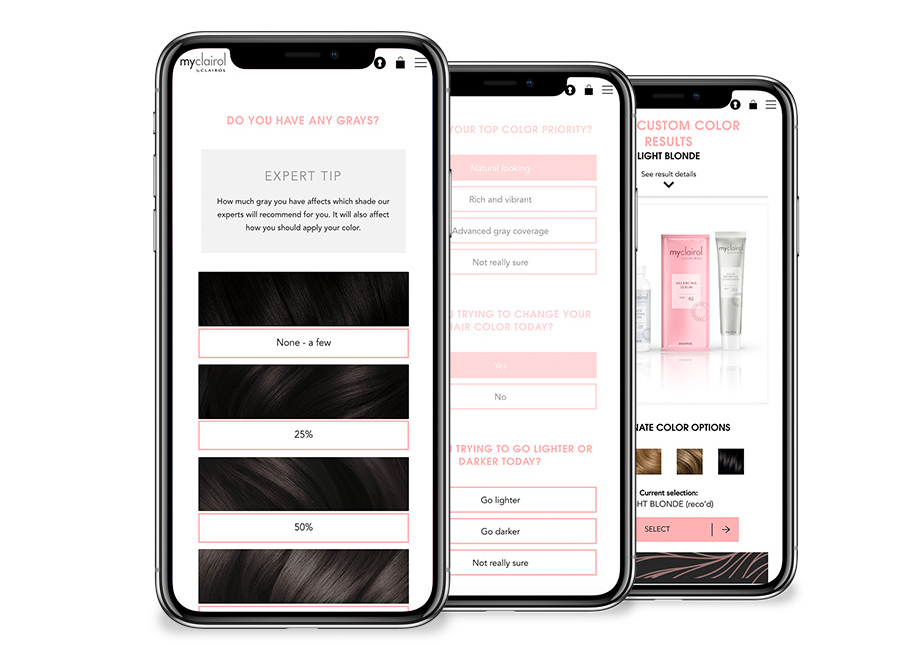
The hair care industry is one of the most competitive and crowded industries within the health and beauty space as a whole, and for industry giant Clairol, a Coty brand, winning over the competition in the online marketplace meant delivering solutions to customers to help eliminate choice overload and reduce product confusion.
The brand implemented a digital sales assistant, which gently leads customers to the right product for their specific needs in just a few steps.
Now, instead of clicking through pages and pages of shampoos, conditioners, and at-home color products, customers can go through a similar sales process as they would in-store, with a digital sales assistant showing the best recommendations for their specific hair type and hair goals.
Nexxus
Education, discovery and context-sensitive curation
As online shopping becomes a larger market in the health and beauty industry, customers are looking for the same educational experience they would receive in-store.
Salon hair product line Nexxus recognized this need in their customer online shopping experience and looked to AI-powered digital sales assistants to help fill this gap.
Now, instead of wondering what products to use – and how to actually use them – Nexxus is bringing the salon experience online.
Customers go through a series of questions, each informed by the answers they’ve previously entered.
At the end of the questionnaire, the customer receives curated product recommendations, a paragraph explaining why these are the best products, as well as educational content on how to use the products or discover other relevant solutions.
Pleij Salon
Data and insights into customer needs and wants
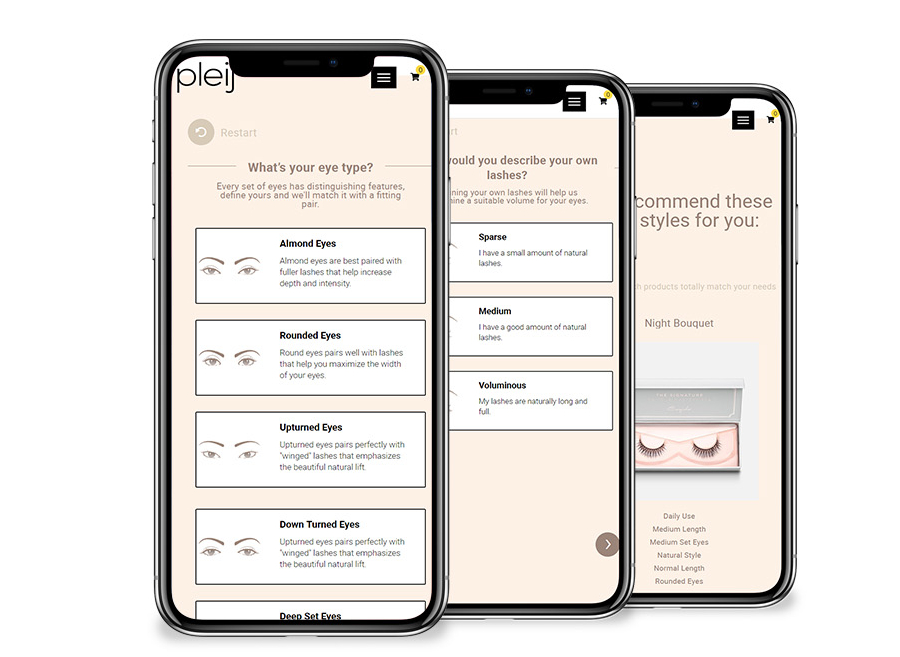
There is a reason that online stores only convert five in every 100 visitors, compared to over 25 out of 100 in brick-and-mortar stores: adaptive selling.
As sales reps get to know more about their customers, they can quickly pivot sales strategies, which, until now, has been impossible for e-commerce brands.
For Pleij Salon, a leading online provider of all things beauty, knowing exactly what customers are looking for helps inform online messaging, marketing, and branding.
The Pleij eyelash extension guide is an AI digital sales assistant, that prompts customers into sharing information about the why behind their shopping, such as where they are going to wear their lashes or what type of beauty personality they have.
With this additional data, Pleij can focus and customize online interactions to the needs of their customers.
If you’re seeking ways to make the digital purchase journey more engaging and human in 2019, download the whitepaper: Health and Beauty Brands in the Engagement Economy
